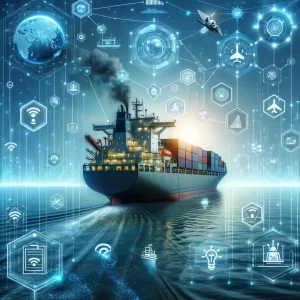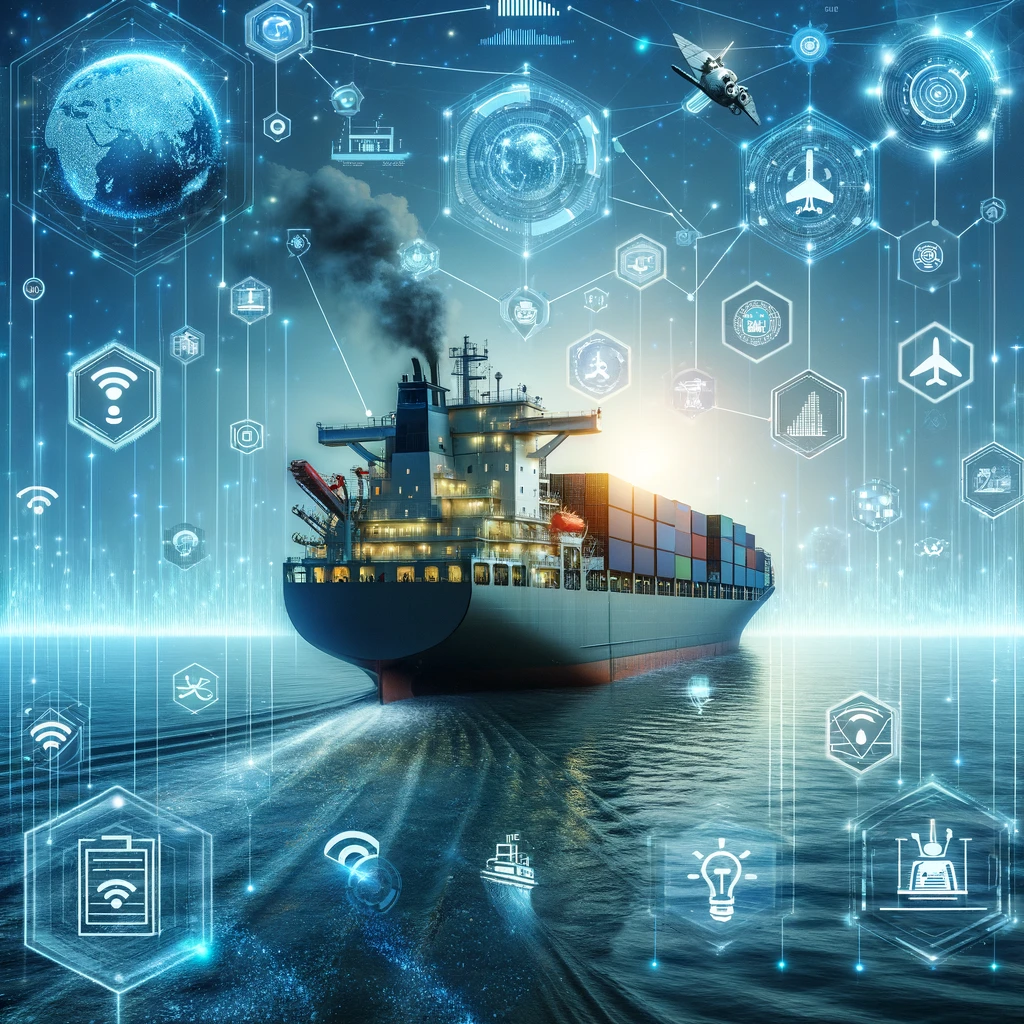The integration of the Internet of Things (IoT) and Artificial Intelligence (AI) on ships is revolutionizing maritime operations. These technologies enhance navigation safety, optimize route planning, and improve fuel efficiency. IoT devices collect vast amounts of data from ship sensors, which AI systems analyze in real-time to predict equipment failures and maintenance needs, thereby increasing operational reliability. Additionally, AI-driven automation systems are being developed to handle complex tasks such as cargo handling and fleet management, potentially leading to more autonomous vessels. This combination not only boosts efficiency but also significantly reduces human error and operational costs.
The maritime industry is undergoing a significant transformation with the integration of the Internet of Things (IoT) and Artificial Intelligence (AI). These technologies are pivotal in advancing operational efficiencies, enhancing safety protocols, and reducing environmental impacts in shipping. This article explores the applications, challenges, and future prospects of IoT and AI in maritime operations. The global shipping industry, responsible for the bulk of world trade, faces increasing demands for efficiency and safety due to growing environmental concerns and regulatory standards. IoT and AI offer promising solutions by enabling real-time data collection and intelligent decision-making.
Internet of Things (IoT) Applications in Maritime Operations
IoT in maritime contexts involves a network of sensors, instruments, and other devices that collect and exchange data. These applications include:
- Vessel Tracking: IoT sensors facilitate real-time tracking of vessel locations, enhancing route planning and cargo management.
- Condition Monitoring: Sensors monitor the condition of ship equipment, predicting failures before they occur to prevent downtime.
- Fuel Consumption Optimization: IoT devices analyze engine operation and optimize fuel usage, significantly reducing costs and emissions.
Artificial Intelligence(AI) in Maritime Operations
AI uses the data collected by IoT devices to make predictive analyses and automate complex decision-making processes:
- Predictive Maintenance: AI algorithms predict equipment failures, scheduling maintenance only when needed, thus avoiding unnecessary checks.
- Autonomous Navigation: AI enhances navigational safety by processing data from various sources (e.g., weather conditions, obstacles) to suggest or automate optimal navigation routes.
- Load and Unload Automation: AI streamlines the loading and unloading processes, reducing turnaround times and minimizing human error.

Integration Challenges
Despite their benefits, the integration of IoT and AI in shipping faces several challenges:
Cybersecurity Risks: Increased connectivity heightens the risk of cyber attacks, which could lead to significant operational disruptions.
Data Overload: Handling the vast amount of data generated by IoT devices requires robust data processing and management systems.
High Initial Costs: The initial investment for integrating IoT and AI systems can be prohibitive for many shipping companies.
Case Studies: Several case studies illustrate successful implementations of IoT and AI in shipping:
– Maersk Line’s Remote Container Management System: This system uses IoT to monitor the condition of refrigerated containers, ensuring the integrity of perishable goods.
– Rolls-Royce Autonomous Ships Project: This initiative focuses on developing fully autonomous ships using AI-driven navigation systems.
Future Prospects
The future of IoT and AI in maritime operations looks promising, with potential advancements including:
- Increased Automation: Further automation of maritime operations could lead to fully autonomous vessels.
- Enhanced Integration: Improved integration of IoT and AI with existing maritime infrastructure to enhance global trade efficiency.
- Regulatory Evolution: Evolving regulations that support the safe and efficient use of these technologies in maritime operations.
IoT and AI are set to revolutionize the maritime industry by enhancing operational efficiency, safety, and sustainability. While challenges remain, the potential benefits offer substantial incentives for continued innovation and adoption.


I think that`s a new subject.